US-based right-wing Christian preachers in deep denial over COVID-19 risks
Last Sunday in Tampa, Florida, the Pentecostal pastor and conspiracy theorist Rodney Howard-Browne conducted two services for full houses at his River church.
The closely packed audience spent hours together taking in hymns and Howard-Browne’s extended sermon, even as the state implemented quarantine for New Yorkers, and projections estimated that Florida’s coronavirus death toll would rise into the thousands.
But Howard-Browne is just one of the most prominent religious leaders on the Christian right who are endangering their flocks and the rest of America by claiming the virus is a hoax, or that it can only be defeated by supernatural means, rather than solid healthcare policy.
A sometime guest on infowars and at the White House; a multi-level marketing kingpin who has alleged that Hollywood celebrities sacrifice children and that New Zealand’s Christchurch mosque attack was a so-called false flag event; Howard-Browne described COVID-19 as a “phantom plague” on 15 March.
In the same sermon, he claimed the public health response to the virus was part of a plot involving the Rockefeller Foundation and World Health Organization, whose goals were forced vaccinations and mass murder.
Howard-Browne has repeatedly refused to call off services in the interests of social distancing. In fact, in recent weeks he has insisted that his congregants embrace and shake hands, exhorting them that they were “revivalists, not pansies”.
On Monday, he was finally arrested for violating Florida’s rules on social distancing.
There are other American religious leaders and preachers who are in equally deep denial about the potentially deadly virus which will almost certainly infect a significant proportion of evangelicals, along with all other Americans.
Roy Moore, a pastor, former Alabama supreme court judge and failed Trump-backed Alabama Senate candidate who lost amid allegations of sexual misconduct with underage girls, told Facebook followers he would write a letter to his fellow pastors on what he called their “duty to continue church assemblies, even in the midst of these trying times”.
Moore added: “Our faith requires it, our duty demands it, and no law or government can prohibit it.”
Kenneth Copeland, a Texas-based “prosperity gospel” preacher who once defended his ownership of three private jets on the grounds that commercial flights would require him to “get in a long tube with a bunch of demons”, told viewers of his Victory Channel in early March that coronavirus was a “weak” strain of the flu, and that fearing the pandemic was a sin.
“Fear is a spiritual force. Fear is not OK. It is sin. It is a magnet for sickness and disease … You are giving the devil a pathway to your body,” Copeland said.
He also criticized pastors who had suspended in-person services and moved to online streaming.
Self-described prophet Lance Walnau wrote in a blogpost that “this virus will touch just a fraction of the population”, adding that it was less dangerous than seasonal flu.
He turned to conspiracy theory for an explanation of the public health response and associated media coverage. “The left wants the economy distressed because crisis improves their chances of taking office,” Walnau wrote.
He then counseled readers to ignore the information being published by media outlets.
“There is a spirit on media that will exaggerate this virus so badly that you will need to insulate your head in order to keep yourself free from paranoia,” Walnau wrote.
In the right-wing Catholic-aligned religious journal First Things, meanwhile, editor RR Reno castigated the widespread closure of Catholic churches and the suspension of public masses in Rome.
Reno wrote: “It is imperative that Christian leaders not succumb to the contagious panic, which is a weapon of the enemy to enslave us to our fears.”
From Montana, Chuck Baldwin – a pastor, former politician and purveyor of conspiracy theories about “Zionist influence” in the media – left the question of whether the virus was a hoax open in an online sermon.
But he added: “If it’s not a hoax, the virus is being used as a completely exaggerated, super-hyped, super-inflated psychological ops campaign against the American people – a coordinated full-court press of intimidation and fear-mongering by government, the mass media and the CDC.”
That message was dutifully amplified by the Idaho state representative Heather Scott on her Facebook page.
Others on the Christian right acknowledge the reality of the virus, but proffer supernatural causes or remedies.
In a blogpost last week, Ralph Drollinger, who has led Bible study for Trump cabinet members, suggested the virus was an instrument of divine judgment, and appeared to blame LGBTQ people. Drollinger later claimed that this was a misinterpretation.
Another would-be prophet, Jeremiah Johnson, claimed last week to have had a prophetic dream in which God had spoken to him.
In a baseball stadium where Trump, at bat, outwitted a demonic pitcher, Johnson said God had told him: “The enemy has intended to strike out Donald Trump at a very critical hour in history. But behold, supernatural help is on the way, for I will slow down the advancement of the enemy and allow him to knock this out of the park.”
André Gagne, an associate professor of theological studies at Concordia University, and a researcher of the Christian right, recently published on the phenomenon of coronavirus denialism among evangelicals. Asked why evangelical leaders are committed to taking such a risk in denying the reality of the infection, or even assisting its spread, Gagne said it was rooted in their theology.
“Many of these preachers believe Christians shouldn’t be controlled by a ‘spirit of fear’,” Gagne said. “They often quote biblical texts which promise God’s healing and protection to those who have faith. They are confident that God is in control; that this is part of his overall plan before a great end-times spiritual revival.”
He said: “There are those who also understand this in terms of ‘spiritual warfare’, and that Jesus gave Christians authority over every demon and sickness. And if a Christian dies, no worries: he or she will ‘be with the Lord’.”
Meanwhile, even where they disagree about the virus, religious leaders have found common ground on one subject: the importance of fundraising.
While Trump’s spiritual adviser Paula White-Cain has now recommended social distancing to her audience, she and Kenneth Copeland both encouraged their listeners to keep the donations rolling into their churches.
Source: The Guardian
Iran FM: EU’s blacklisting of IRGC a ‘major strategic mistake’
EU blacklists IRGC in legally flawed move irrespective of consequences
VIDEO | Press TV's news headlines
VIDEO | Afghanistan opens first specialized cancer hospital
Trump officials held secret talks with Canadian separatist group: Report
VIDEO | Pakistan’s legal community condemns UNHRC anti-Iran resolution
Resistance groups announce volunteer recruitment to defend Iran
Indians rally to condemn Trump's threats against Ayatollah Khamenei


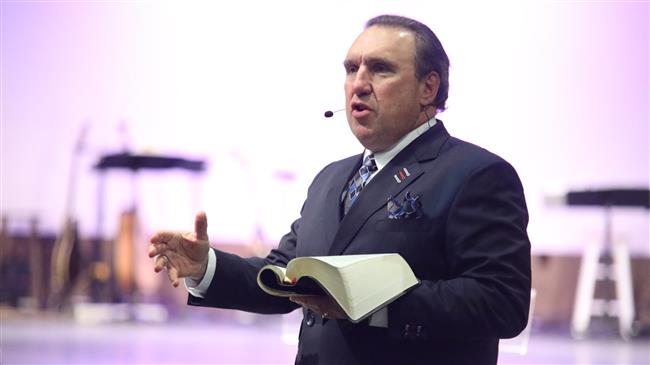


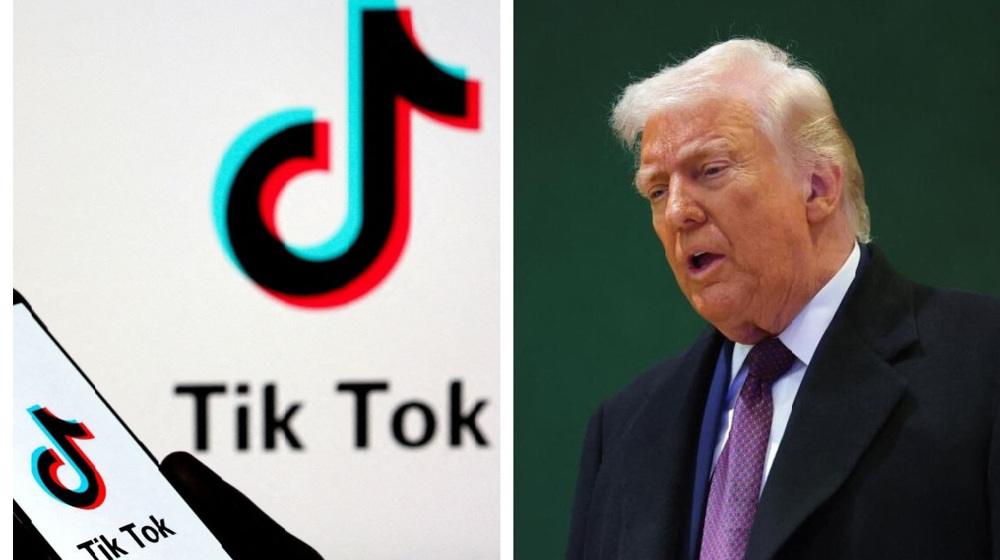
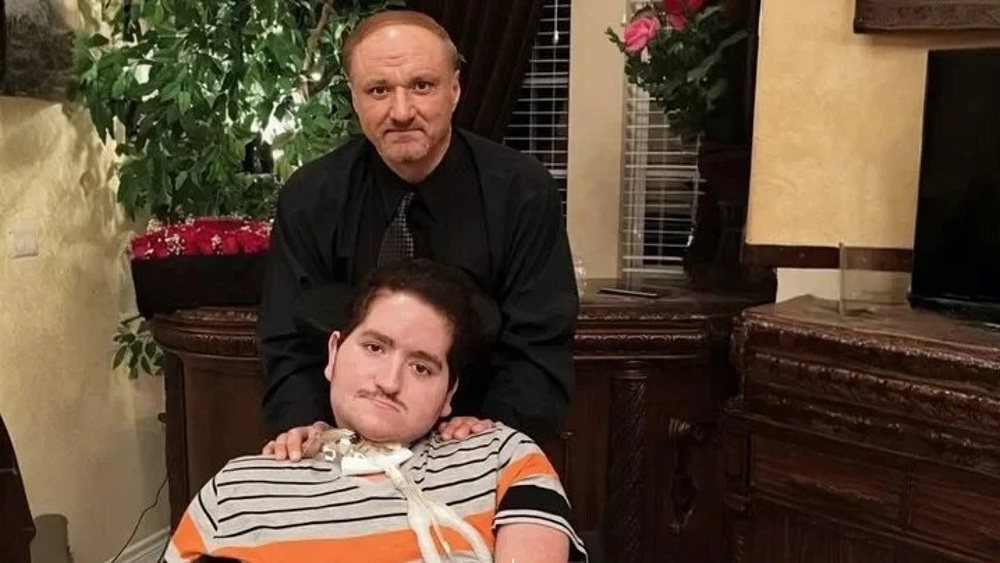
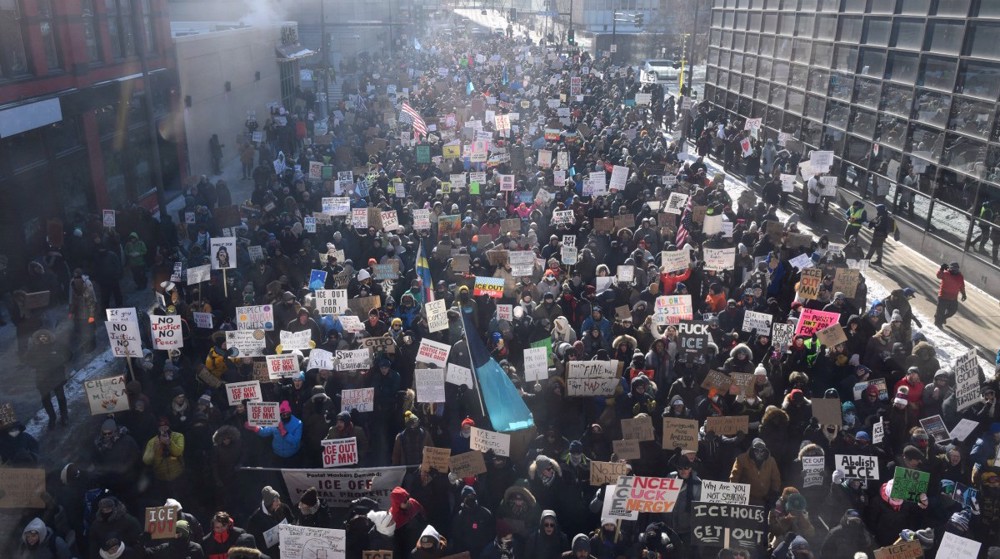




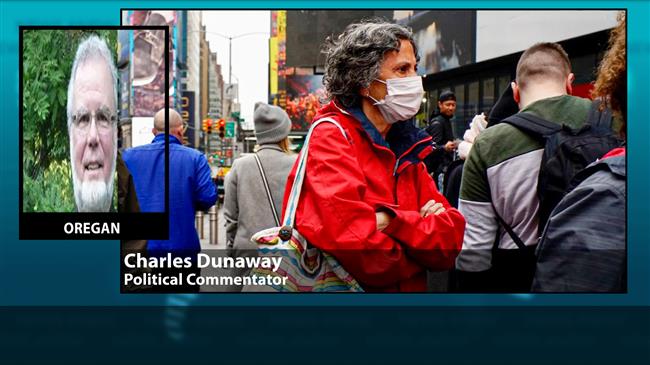
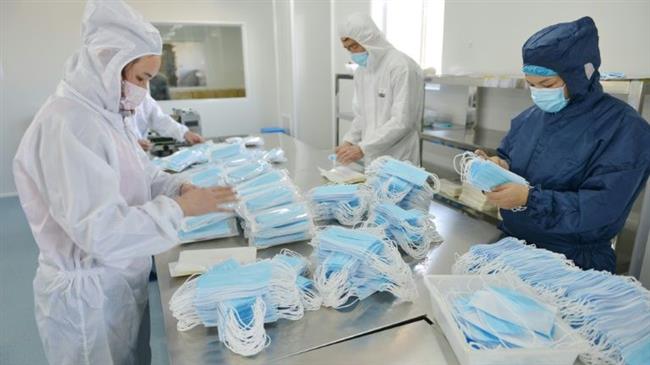

 This makes it easy to access the Press TV website
This makes it easy to access the Press TV website